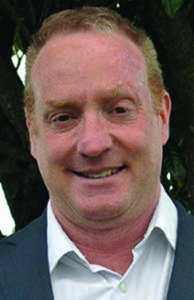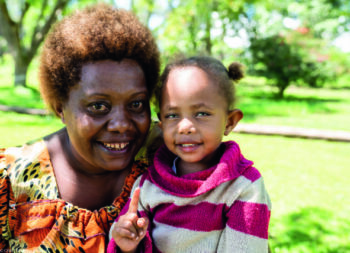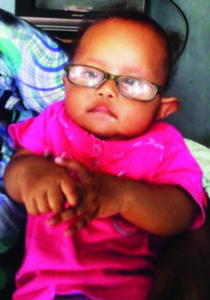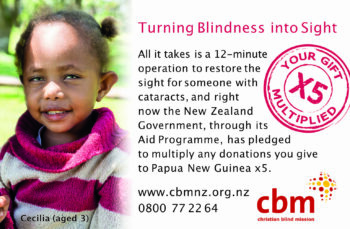Turning Blindness Into Sight In The Remote Highlands Of Papua New Guinea
Imagine being blind and isolated, unable to be with your loved ones, and having to fend for yourself during the COVID-19 pandemic. Eyesight is something we often take for granted. Yet there are many people in the remote Highlands of Papua New Guinea (PNG) who are needlessly blind. With COVID-19, many people with disabilities in PNG could not access the services they needed and others had their life-changing surgeries delayed. But services are now accessible again and surgeries are back on track.
PNG has one of the highest levels of poverty in the Pacific Region and worldwide - ranked only 155 out of 189 countries on the UN Human Development Index (HDI). New Zealand by comparison is ranked 16th. Prevalence of blindness is higher than in neighbouring Pacific Islands, with a 5.6% rate of blindness among people aged 50 and over. In New Zealand the rate of blindness is under half this.
The leading causes of visual impairment and blindness are cataract and untreated refractive error, both of which are preventable. However, with an estimated population of around 9 million people, of which 86% reside in rural areas with poor infrastructure, service delivery is insufficient. To date, there are only 16 practising national ophthalmologists in PNG, far below the required 72 ophthalmologists to attain the World Health Organisation (WHO) recommended ratio for the population. In contrast, New Zealand has 10 times more ophthalmologists than PNG.
Most health services and specialist practices are located in larger towns. This results in many people being deeply affected by avoidable blindness. Many people in PNG have never even seen a doctor before. The Highlands Region is the most populous with approximately 39% of PNG’s population living there. It has the highest number of un-operated cataracts. In fact, 1 in 15 men and 1 in 10 women in the remote Highlands struggle with blindness and people face limited access to infrastructure and services. Not surprisingly, people who are blind or have visual impairment are unable to access the support they need and experience social challenges that increase risk of abuse and neglect. This perpetuates a cycle of poverty and disability, limiting access to education and livelihood activities, and increasing economic burden on families. Blindness is often met with suspicion, as those who are blind may be stigmatised and may have their human rights violated. Feelings of isolation are commonplace.
I have visited the Highlands and seen for myself the challenges people with disabilities face. Of all our nearest neighbours in the South Pacific, the most extreme examples of poverty are in the Highlands of PNG. This is where I met children like little Cecelia. As a baby, Cecilia was diagnosed with bilateral congenital cataracts. Children who are blind, and living in poor communities like Cecilia’s, are far more likely to get sick, have an accident, be exploited or be abandoned and can die young. But, thanks to generous cbm supporters, Cecilia was able to receive the miracle of sight-saving cataract surgery to remove the cloudy film from her eyes. Now aged three, her future is bright and she can live her life to the full – just as God intended!
People living with avoidable blindness desperately need support and right now the New Zealand Government, through its Aid Programme, has pledged to multiply any donations for PNG given through cbm by five.
cbm, also known as Christian Blind Mission, is an international Christian development organisation, whose mission includes delivering sight-saving cataract surgeries and other services in PNG for the past forty years.
Dr Murray Sheard received his PhD in Ethics and Philosophy from the University of Auckland. He has worked in international development for over 15 years and is the Chief Executive Officer of cbm New Zealand.
To find out more about cbm’s life-changing work, visit www.cbmnz.org.nz
____________________________________




 Entries(RSS)
Entries(RSS)